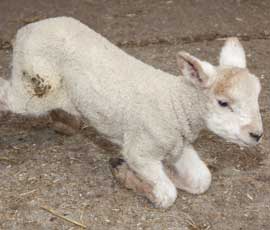Schmallenberg case found on Scottish farm

Scotland’s rural affairs secretary Richard Lochhead has warned farmers to be more vigilant for signs of the Schmallenberg virus after a ram on Orkney was found to be carrying the disease.
Mr Lochhead said: “I’m aware that a ram has tested positive for the Schmallenberg virus on Orkney, but understand that it had been imported from a part of England known to be affected by the virus.
“Schmallenberg is a relatively low impact disease. However, this discovery reinforces the Scottish government’s message that farmers should maintain good biosecurity, source stock sensibly and seek veterinary advice if they have concerns about the health of their stock.”
The rural affairs secretary added that although it was Scotland’s only case to date, the Scottish government was not complacent.
“We are working in partnership with industry to put in place proportionate surveillance measures to detect the disease,” Mr Lochhead said.
NFU Scotland president Nigel Miller echoed Mr Lochhead’s words.
“The ram had been brought in from a virus-risk area testing positive for the disease. Contact animals will be tested, although it is hoped that the disease will not have spread. The weather has been cold recently, which inhibits insect vectors, such midges, and it is therefore likely that any potential spread will be blocked.”
Mr Miller, who is also a livestock farmer and trained vet, commended the ram’s owner for conducting the Schmallenberg test and said that the event underlined the need for all livestock farmers importing stock from SBV-risk areas to test animals for the disease.
“There is no structured ‘sentinel’ surveillance in northern England or Scotland and it is therefore possible that the disease is already circulating in the south of Scotland. As midges and other vectors are likely to be active for at least another three weeks, we are advising all our members to speak to their vet if they are concerned about their livestock,” Mr Miller said.
“Schmallenberg is still a relatively new disease and we are not yet familiar with all its attributes. However, modelling suggests that the disease could become established in Scotland south of the Clyde and Forth valleys. While the overall impact of the virus may be low in adult animals, it can impact severely on pregnant livestock, especially sheep, resulting in reduced foetal viability and deformities,” he added.
